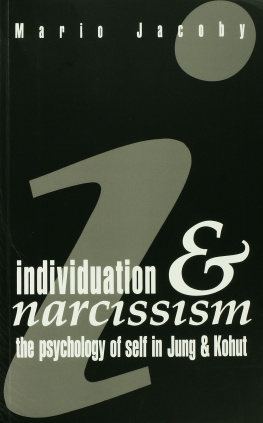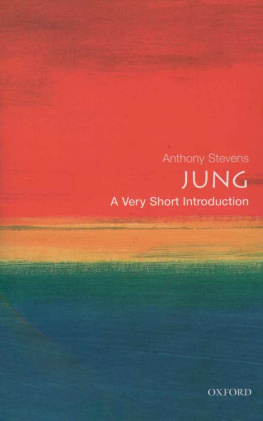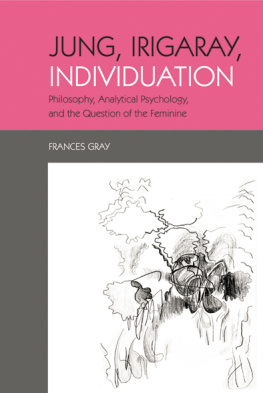Individuation and Narcissism
Recent developments in Freudian psychoanalysis, particularly the work of Kohut and Winnicott, have led to a convergence with the Jungian position. Individuation and Narcissism attempts to overcome the doctrinal differences between the different schools of depth psychology, while taking into account the characteristic approaches of each. Through a close examination of the actual experience of self, the process of individuation, narcissism and narcissistic personality disorder, the author demonstrates the benefits of a cross-fertilization of ideas and techniques for the professional analyst.
Mario Jacoby examines the origins of the myth of Narcissus and from a Jungian perspective attempts an interpretation. He traces the dispute that arose between Freud and Jung over instinct theory and compares the schools that developed. He argues that the similarities of the work of Winnicott and Kohut to the work of Jung are partly obscured by the language they developed to express their theories.
In applying these theories to the practice of psychotherapy, it is argued that the therapist must recognise the intervention of his own narcissism in the therapeutic process. The author demonstrates how the concepts of the ego and the self arise in therapy and discusses the question of empathy and countertransference and how they can affect die therapeutic process.
Individuation and Narcissism provides a comprehensive discussion of the Freud/Jung controversy and the more recent research on the self for the student of analytical psychology and the trainee analyst or therapist. It also draws together the experience and techniques gathered in both schools to give the practising therapist practical guidelines to improve their interaction with patients suffering from narcissistic wounds.
Individuation and Narcissism
The Psychology of the Self in Jung and Kohut
Mario Jacoby
Translated from the German by Myron Gubitz and in collaboration with the author, by Francoise O'Kane
First published in Germany in 1985 as
Individuation und Narzissmus: Psychologie des Selbst bei C. G. Jung und H. Kohut by Verlag J. Pfeiffer , Mnchen
Verlag J. Pfeiffer, Mnchen 1985
This edition published in 1990 by Routledge
27 Church Road, Hove, East Sussex BN3 2FA Simultaneously published in the USA and Canada
by Routledge 270 Madison Avenue, New York NY 10016
Reprinted in paperback in 1991, 1993, 1995, 1998, 1999, 2002 and 2006
Routledge is an imprint of the Taylor & Francis Group, and informa business
Verlag J. Pfeiffer, Mnchen
Typeset by NWL Editorial Services, Langport, Somerset
Printed and bound in Great Britain by
Biddles Ltd, King's Lynn, Norfolk
All rights reserved. No part of this book any be reprinted or reproduced or utilised in any form or by any electronic, mechanical, or other means, now know or hereafter invented, including photocopying and recording, or in any information storage or retrieval system, without permission in writing from the publishers.
British Library Cataloguing in Publication Data
Jacoby, Mario, 1925
Individuation and narcissism: the psychology of the self in Jung and Kohut.
1. Self. Psychological aspects
I. Title. II. Individuation and Narzissmus. English 155.2
Library of Congress Cataloging-in-Publication Data
Jacoby, Mario.
[Individuation and Narzissmus, English]
Individuation and narcissism: the psychology of the self in Jung and Kohut / by Mario Jacoby; transl. from the German by Myron Gubitz and, in collab. with the author, by Francoise O'Kane.
p. cm.
Translation of: Individuation and Narzissmus.
Bibliography: p.
Includes index.
1. Narcissism. 2. Psychoanalysis. 3. Self psychology. 4. Jung,
C.G. (Carl Gustav), 1875-1961. 5. Kohut, Heinz. I. Title.
RC553.N36J3313 1989
155.2-dc20 89-6399 CIP
ISBN 13: 978-0-415-06464-4
ISBN 10: 0-415-06464-3
Contents
This work arose out of a need to bring together and review different sets of observations, theories, and therapeutic systems. Since the birth of our still-young science (generally reckoned as the publication of Freud's Interpretation of Dreams in 1900), there has been a vast outpouring of research, speculation, theorizing, analysis, and controversy, resulting in a broad spectrum of schools and movements, all holding high the banners of their own truths and hostile to the others. Considering that all branches of depth psychology register about the same percentages of success and failure in treatment, it seems to me that the time has come for more tolerance. If the various analytical schools were to take greater notice of one another, they might all be significantly enriched, since each of them has amassed experience and developed techniques from their own particular theoretical perspective. But even assuming sufficient readiness to pay attention to other approaches, there is another difficulty: die different schools have all developed their own specialized vocabularies, the nuances of which can be adequately understood only by insiders. For example: Heinz Kohut's extremely interesting train of thought, which he expressed in 1971 in his first book, The Analysis of the Self, was packaged in such a stiff and circumlocutory psychoanalytic idiom that many potential readers were put off. I found it necessary to read the book several times in order to really grasp its subtleties, but I took the trouble to do so because it seemed to me that what Kohut had to say was illuminating and stimulating for my own therapeutic work; in many respects I perceived in them an intimate kinship with my own psychological approach. A small number of my colleagues of the Jungian persuasion read Kohut's early work and commented: 'Why, that's pure Jung!'. Some of them also felt that it was outrageous of Kohut never to have so much as mentioned Jung. But most of the colleagues and students to whom I recommended Kohut's book set it aside very quickly, maintaining that it was simply unreadable.
Once Kohut developed Ins own terminology (about 1977) to describe the various aspects of his psychology of the self, his work became somewhat more accessible. But it still demands considerable effort by the reader. Winnicott, too, uses a language of his own in his attempts to articulate the pre-verbal experiences of infants. Nor may we assume that the specialized jargon of Jungians is readily comprehensible to outsiders; an observation that applies in even greater measure to the language of object-relations theorists.
All schools of depth psychology focus their attention on the same object they all hope to understand and explicate the human psyche. But such an enterprise faces an insurmountable obstacle. Without becoming involved here in an extensive epistemological discussion, I should like to make the following brief observation on this subject: we can never achieve purely 'objective' results in our efforts to make the human psyche the object of our understanding, since the psyche is at the same time an active element of our subjective being. In other words, the subjective, the 'personal equation' of the observer, is always a part of his or her attempt to understand and explain; it cannot be eliminated. Hence there is no universally valid, demonstrable truth in depth psychology; we must always rely upon our Evidenzgefhl, our sense of whether or not theories about the workings of the psyche seem plausible and in harmony with experience. Ultimately, that is the only fundamental criterion.









